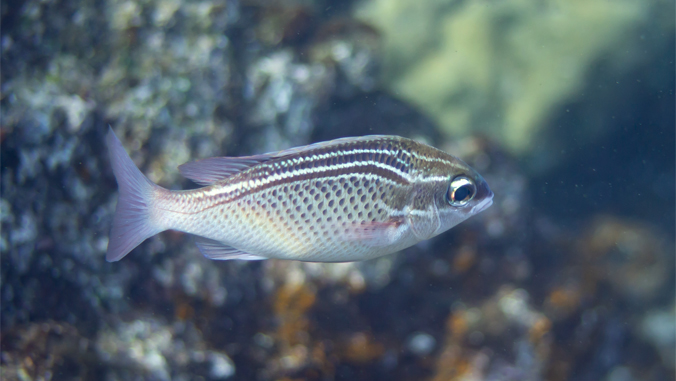
As Earth’s climate changes, current scientific models predict that by 2050, coral reef fishes could shrink by 14–39% due to elevated temperatures. However, a team of researchers have uncovered surprising survival tactics by coral reef fish who inhabit the Arabian Gulf, the warmest waters on Earth.
Led by Jacob Johansen, an associate research professor at the University of Hawaiʻi at Mānoa Hawaiʻi Institute of Marine Biology, and John Burt, co-principal investigator at The Mubadala Arabian Center for Climate and Environmental Sciences (ACCESS) at New York University Abu Dhabi, the team discovered adaptations in metabolism and swimming abilities that help fish survive the extreme heat of the Arabian Gulf.

In the paper “Impacts of ocean warming on fish size reductions on the world’s hottest coral reefs,” published in Nature Communications, the researchers compared two species of fishes, Lutjanus ehrenbergii and Scolopsis ghanam, surviving in elevated Arabian Gulf temperatures to those of similar age living in cooler conditions in the nearby Gulf of Oman. The researchers set out to determine what qualities enable Arabian Gulf reef fish to survive there, where typical summer water temperatures are comparable to worst-case ocean warming projections for many tropical coral reefs worldwide by 2100.
“The hottest coral reefs in the world are an ideal natural laboratory to explore the future impact of rising water temperatures on fishes,” said Burt. “Our findings indicate that some fish species are more resilient to climate change than previously understood, and help explain why smaller individuals are evolutionarily favored at high temperatures.”
Surprisingly, these fish did not follow leading theoretical predictions where the maximum size of fishes is expected to reduce due to limitations in metabolic oxygen-supply. Instead, these fish demonstrated an unexpected capacity to maintain sufficient oxygen to fuel performance, even at elevated temperatures.
“Importantly, our findings reveal that oxygen limitation is not singularly driving the global shrinking of fishes phenomenon,” said Johansen. “There are other factors at play, and the (in)ability to find and capture adequate prey to sustain large body sizes appears to be a critical limitation, with significant implications for our understanding of marine biodiversity in a continuously warming world.”
The study’s findings challenge the prevailing view that oxygen supply limitations in larger fishes are the main reason for smaller fish in warmer waters—the so-called “shrinking of fishes phenomenon.” The species observed did not follow this pattern, suggesting that other factors are also at play. The study proposes a new theory that the decrease in fish sizes and their survival in increasingly warm oceans might be more closely related to an imbalance between how much energy fish species can obtain and how much they need to sustain themselves.

